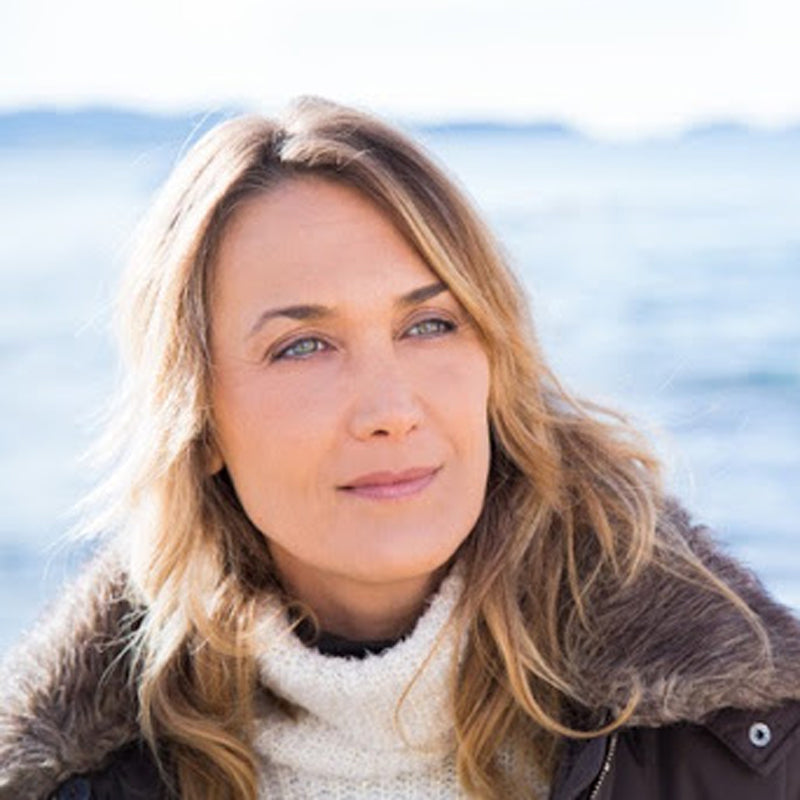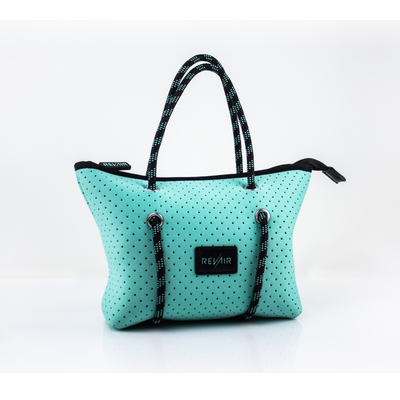
5 Powerful Tips On Caring For Aging Hair This Winter

By Guest Author Morgan Allman for BNY
Who here has been personally victimized by uncontrollable hair in the winter? Cue visual of myself jumping up and down, on a chair, with my entire arm waving over my head! I live in the mountains and trust me when I say the dry, cold weather we get eight months out of the year can truly wreak havoc on my hair. If you’ve ever experienced winter, even for a day, then you know exactly what I’m talking about here.
Aging hair brings challenges of its own, add in the harsh climate of winter and these two certainly put up a fight against our hair health. But with the right resources, we can put up an even bigger one. Here are five tips for putting up your best fight and caring for your aging hair in the winter.
1. Space out your washing
One of the simplest things you can do when it comes to hair care, in general, but specifically during the winter months, is to space out how often you wash your hair. Washing, especially with harsh shampoos, can strip your hair of its natural oils which work wonders for your hair. Granted you don’t want to walk around with an oily mess atop your head, but refraining from washing every day can help protect your hair from becoming overly dry and brittle. Start by skipping only one day, so washing every other day. If you’re still noticing some dryness in the hair strands and your scalp isn’t looking terribly saturated with oil, switch it to once every three days and see how your hair fairs.
2. Avoid heat
The second recommendation for saving your hair during these tough winter days, also starts in the shower. Heat damages the hair by stripping moisture from the strands and over-drying your hair. This can cause your hair to become brittle and may lead to breakage and frizz.
The first way you can tone down the heat is to shower in warm water instead of steaming, hot water. While it may not seem like the water temperature may have too big of an impact, the hot water opens up the hair follicle and pulls moisture out. You may also consider limiting the amount of heat applied to your hair when it comes time to style. Consider using alternative styling methods such as air or towel drying, heatless curlers, or sleeping in braids. When you do apply heat to your hair, be sure to use a heat protectant spray before adding any sort of heat. Additionally, if you get styling treatments, spacing them out to eight to ten weeks between sessions can also be helpful.
3. Protection goes outside
Another, lesser thought of, consideration for when you are in the cold is what happens to your hair when you leave the house. My first point is a “duh” moment, but we’re almost all guilty of doing this at some point. Do not, and I mean under any circumstance if you care about your hair, leave the house with wet hair. I know I just said to avoid heat, but in this case, it is definitely the lesser of the two evils. Going into freezing temperatures leaves your hair extremely vulnerable to freezing and breakage. Instead, let your hair air dry as long as possible, and finish it off with the cool setting on your blow dryer. You can also alternate between low heat and cool if you’re really in a pinch.
4. Repair, don’t despair
Now for one of my favorite tools to give my hair a little boost, conditioners. Aging hair is already more prone to dryness and frizz, and the cold, dry air can be killer. To combat this, we’ve got a few options. Once per week I swap out my normal conditioner for a deep conditioner and let it sit on my hair for a couple of extra minutes while in the shower. Deep conditioners are a godsend. They penetrate deep into the hair shaft to deliver much-needed hydration to otherwise thirsty and damaged strands. This has been an absolute game-changer for me, and I highly recommend this swap.
Alternatively, you can try a hair masque. While the two may seem like essentially the same idea, hair masque offer more in that they not only soften, but also strengthen your hair by adding much-needed nutrients to your depleted strands. The Hair Redemption masque from Better Not Younger does all this and more with ingredients like mango and vitamin E. Similarly, a daily hair oil or elixir can help to add a bit of hydration to your dry hair and prevent frizz from appearing the moment you step outside the house. No matter what your hair type is, all three of these can seemingly erase what you may have previously deemed irreparable damage.
5. Diet, Diet, Diet
Finally, believe it or not, what you eat, and really everything you put into your body, plays a massive role in the health of your hair. Some of the most important nutrients you should make sure you’re incorporating into your diet should be vitamins A, C, and D, as well as iron and fish oil. While it’s always best to get these naturally, supplements can be a great addition to your routine, boosting intake and curbing any shortages. So, what do all these vitamins do, and why do they matter in terms of our hair?
Well, vitamin A helps to keep sebum production up, and your scalp nice and moist. Your body gets rid of most vitamin overages, but vitamin A is different and too much can be a very bad thing, so don’t go too crazy on this one. Vitamin C is a powerful antioxidant, which can help fight off any free radicals that buildup. Vitamin D’s role is to stimulate hair follicles, thereby promoting new growth. Vitamin D is especially important in winter, as we typically see less sunlight, causing our bodies to absorb less vitamin D naturally. This is a key factor in why hair growth typically slows in the winter. As for iron, this is what helps your body to circulate blood and repair damaged cells and, again, promote new hair growth.
We can’t wait for you to try out these tips and make your hair happy! As always, team RevAir is always here to chat about healthy hair, haircare and everything in-between.
By Guest Author Morgan Allman for BNY















